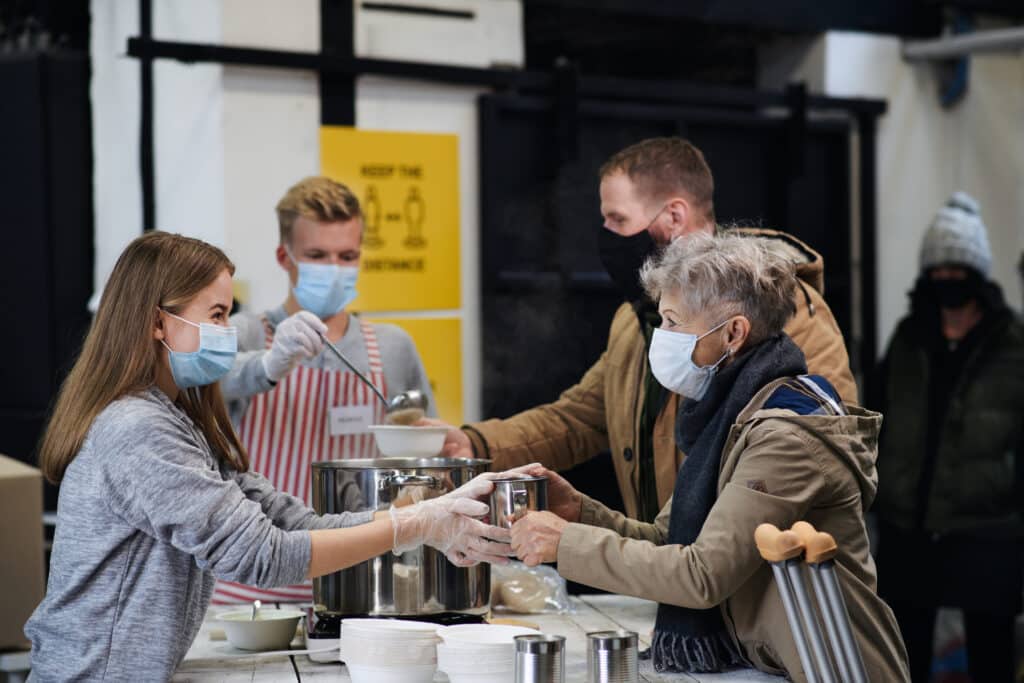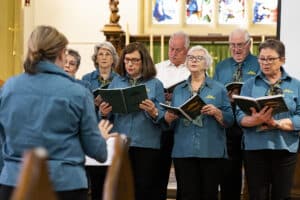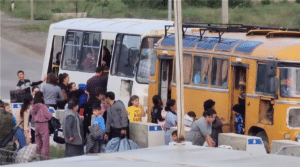
Penny Mulvey
30 June 2024
We are officially in winter. The days are shorter, the nights are colder and for those sleeping rough, daily life has become that much harder.
In fact, Melbourne is experiencing a health emergency. People who are on the street are likely to die 30 years earlier than those with stable housing. Most of us take a roof over our heads for granted. Have you ever reflected on the fact that housing is good health care!
Melbourne temperatures have been hovering close to zero this June, and country Victoria has dropped into negatives. Those of us with central heating might notice cold toes, but for those sleeping rough it is a very different story.
Living in the inner city and working in the city centre, I see too many people trying to warm themselves on the cold, unforgiving cement pavements, a bowl and a note in front of them, desperate for loose change. I feel helpless and ashamed. Why do I avoid eye contact and walk past quickly?
Read more: For one man, hope and a haven at last, as shelter pushes against tide of homelessness
Those who are on the front line of service delivery for the homeless know only too well that poor health is both a cause and a consequence of homelessness.
There are several organisations working collegially to assist those who are homeless. The City of Melbourne has launched a draft Homeless Strategy 2024-2030.
“Homelessness is something that people experience; it is not who they are,” the strategy states.
It is important for all of us to meditate on those words. Organisations like the Brotherhood of St Laurence, Launch Housing, Anglicare Victoria, Melbourne Zero Network and National Shelter know this all too well. Representatives of these organisations see daily the devastating impact being without secure and affordable accommodation has on a person’s life, whether for a short time or over several years.
The City of Melbourne strategy recognises that a collective response is needed and that we all – residents, city workers, businesses, visitors, churches – have a part to play in changing the narrative for those whose lives take a turn that leaves them without shelter. The word “zero” in Melbourne Zero Network is there for a very specific reason. This diverse alliance wants to make zero homelessness a reality by taking practical steps to end street homelessness in Melbourne’s centre.
Read more: Once financially secure people face need as costs spiral: Christian charities
This year’s Rental Affordability Snapshot undertaken across Australia by Anglicare provided no surprises. The RAS shows that the most vulnerable – students, job seekers, those with a disability – are struggling to find affordable rent.
As median rents have also risen, couples and families with uncertain housing, are also struggling to find affordable rental properties, that gives them security of housing.
Anglicare Victoria chief executive Paul McDonald, described finding an affordable rental, for those on low incomes, as “needle-in-a-haystack stuff”.
“It’s a terrible situation with winter just around the corner and it is time the federal government recognises this national housing crisis and turbocharged commitments to prevent further calamity for families and individuals searching to find affordable housing,” he said.
Affordability has declined in metro Melbourne. Only 0.27 per cent of rental properties in metro Melbourne were affordable for Victorians on income support. Just 14 per cent were affordable for those on minimum wage. Both have decreased since 2023.
Median weekly rents have also risen sharply. In metropolitan Melbourne median rent increased by 14.3 per cent, and regional Victoria recorded an almost seven per cent increase.
Victoria is growing faster than any other state. With demand already outstripping supply, the resulting squeeze will push rents higher. Rising house prices are adding pressure to the rental market. As property prices increase faster than household incomes, Victorians on income support and minimum wage are competing with higher-income professionals for the rental properties that are available.
Anglicare Victoria poses the question in its 2024 RAS: “What can we do? Australia needs a national strategy to end youth homelessness, particularly for those leaving state care.”
As Christians, we need to take notice of these statistics. Only 2.9 per cent of social housing is leased to people under 24, even though young people aged 12 to 24 make up around a quarter of homeless people.
Read more: Housing crisis forcing people to choose between their abusers and homelessness
Anglicare stresses the need for a dedicated housing strategy aimed at addressing and preventing youth homelessness.
It also calls on the state government to actively seek better collaboration with the federal government as rising house prices and a fast-growing population have combined to put further pressure on an already-undersupplied rental market.
Anglicare’s Diocesan and Parish Partnerships program manager Chris de Pava provides support to 25 parishes across Victoria who are providing practical assistance to those in urgent need of basic everyday needs.
Seventeen of these parishes are providing emergency relief, three offer breakfast programs, including St Peter’s Eastern Hill, which provides sit down meals seven days a week and St Mark’s Fitzroy, which also provides showers, washing machines and comfy couches.
Until COVID, 40 parishes were donating food to the St Mark’s program.
Unfortunately, that support was another casualty of the difficult years of COVID in this state.
Wherever we live, be it the CBD, the outer suburbs, a country town, there are people living rough. As Christians, how do we respond?
It is overwhelming, as individuals, to quite know what to do. But as a church, as the people of God, together, we can start by talking to organisations like BSL and Anglicare. We can do our own research. We can talk to people on the street and find out what might help them. We can visit other churches that have programs underway, such as St Peter’s Eastern Hill or St Mark’s Fitzroy.
There are still two more months of winter. What can you do? If you or your parish have stories you would like to tell about your work with those who are homeless, please email us at tma@melbourneanglican.org.au
For more faith news, follow The Melbourne Anglican on Facebook, Instagram, or subscribe to our weekly emails.






